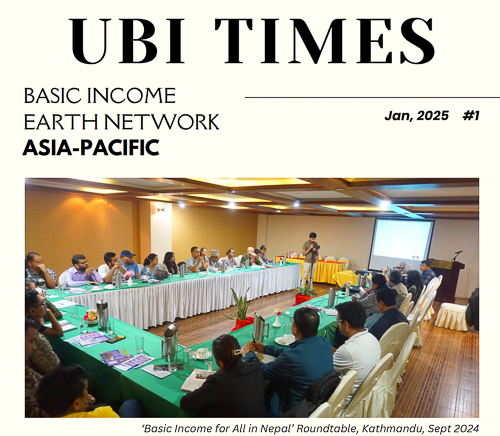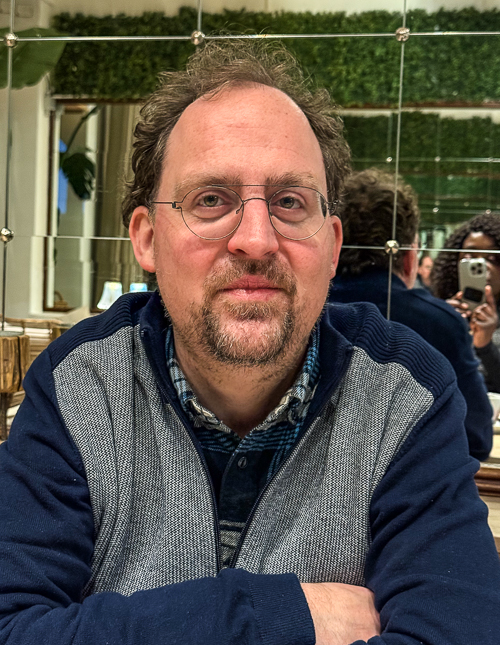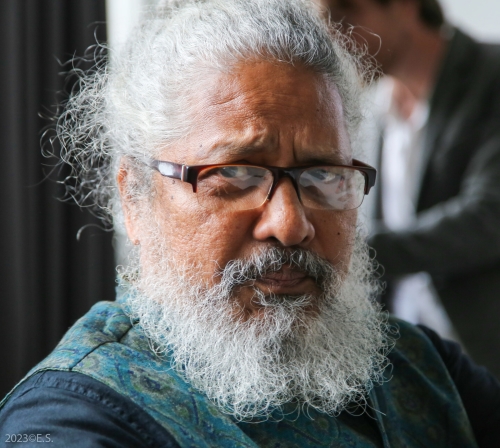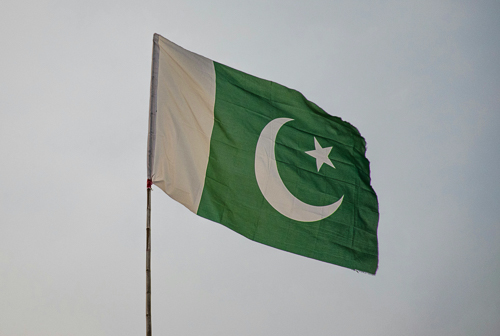
BIEN’s Asia-Pacific Hub publishes its first newsletter
In January, BIEN’s Asia-Pacific Hub published its first newsletter, 14 pages complete with many articles and photos.
To view the newsletter, click here.

In January, BIEN’s Asia-Pacific Hub published its first newsletter, 14 pages complete with many articles and photos.
To view the newsletter, click here.

Steven Janssens is a Belgian filmmaker and engineer known for his diverse career as a director, editor, and trainer. He gained recognition for documenting Crazy Money (2020), a film capturing the Eight project in Busibi, Uganda, where residents receive unconditional basic income. His extensive filmography includes the documentary Wardje (2004), Point Off U (2007), and contributions to Kongo (2010). Steven has worked on award-winning projects like Atoma by Brepols (2012) and web documentaries like Het Antwerpgevoel (2010), and most recent film Blind Spots (instagram: @blindspotsthefilm). Combining technical expertise and creative vision, Steven continues to explore impactful storytelling through innovative and socially conscious filmmaking. Janssens talks about collaborating with sociologist Maarten Goethals to provide unconditional cash transfers in impoverished African communities, including Uganda and the Democratic Republic of the Congo. Inspired by the transformative potential of basic income, Janssens produced Crazy Money, documenting their pilot project in Busibi, Uganda. By partnering with the University of Antwerp, Eight measured the program’s impact on education, healthcare, and entrepreneurship. Janssens emphasizes trust and autonomy, noting significant improvements in life satisfaction and community development. Eight’s efforts now expand to Côte d’Ivoire, addressing poverty, climate resilience, and gender equality through evidence-based, scalable interventions.
Scott Douglas Jacobsen: Today, we’re here with Steven Janssens, a Belgian documentary filmmaker who co-founded the nonprofit Eight, established in 2015. You founded this organization with sociologist Maarten Goethals. What was the original inspiration behind Eight, and why did you focus specifically on underserved communities in Uganda and the Democratic Republic of the Congo?
To read the full interview, click here.

In this event, we will be joined by one of the architects of the Swiss Basic Income Referendum, Enno Schmidt. To date, Switzerland is the only country anywhere that has gone to the polls over whether or not to adopt a basic income for all. Despite ingenious campaigning, the referendum was unsuccessful – a majority of Swiss were swung by economic and work ethic arguments against the policy. This conversation will shed light on the history of the referendum, how it came to be on the ballot box, what the campaign was like and where it was won and lost. It will also turn to the future, to prospects for a second referendum in Switzerland and for basic income in Europe and beyond.
The event will take place on Wednesday, 29th January 2025, from 3pm – 4:15pm. It will be a hybrid meeting, hosted in 8 West 2.34 and online here.

Today, we are here with Sarath Davala. He is an international intellectual, an Indian sociologist, and the Chair the of Basic Income Earth Network (BIEN), a global organization fostering dialogue on universal basic income. Of the organizations I write for and collaborate with, this is genuinely international regarding its members’ personalities, cultural backgrounds, and intellectual contributions. Sarath is one of those prominent figures.
He is the co-author of Basic Income: A Transformative Policy for India. He served as the research director for the Madhya Pradesh Basic Income Pilot from 2010 to 2014. He was an associate professor at the Indian Institute of Management Bangalore from 1993 to 2000. Based in Hyderabad, India, he co-founded the India Network for Basic Income and Mission Possible 2030, both dedicated to advancing informed discussions about basic income.
First, what inspired your sociological perspective and promotion of universal basic income as a transformative policy proposal?
To read the full interview, click here.

Photo by Hamid Roshaan on Unsplash
Social assistance is everywhere conditional, and in Pakistan it is no different. Either it comes with behavioural strings attached — ‘do this and we’ll help you, don’t and we won’t’ — or it is targeted, with receipt conditional on being a specific type of person or facing a particular type of problem (think Benazir Income Support Programme [BISP] and the extreme poor).
Those who defend this approach typically offer the same justifications. First, they argue, resources are limited, which means that we should give them to those most in need and make sure they use them well. Intuitively sensible, this position quickly gives way to the troubling claim that as the poor aren’t used to having any money, we should ‘guide’ them so that they don’t waste what they get. Inside this sits the pernicious, yet sadly widespread, prejudice that the poor are feckless and do not deserve our support.
Critics of these positions abound, as they do of conditionality more broadly.
To read the full article in Dawn, click here.